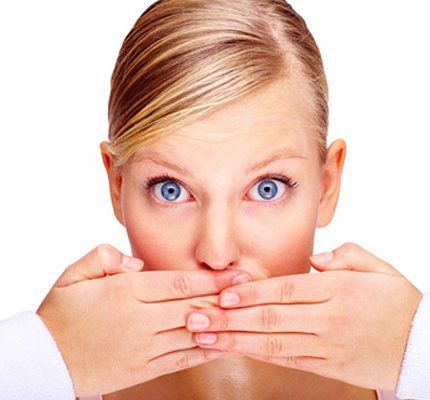NEWS
Back to the blogLATEST NEWS
CATEGORIES
6 Causes of Bad Breath and How to Treat It
ON Jan 25, 2023
Bad breath, also known as halitosis, can be an embarrassing problem. A supply of breath mints may not be enough. While nearly everyone has had an experience with bad breath at some point, Scientific American reports that 25 % of people worldwide experience chronic halitosis. There are many causes and fortunately most of them are easy to remedy.
THE CAUSES OF BAD BREATH
LATEST NEWS
CATEGORIES
BAD BREATH TREATMENTS
1. PROPER ORAL HYGIENE:
Improving your oral hygiene with brushing and flossing will reduce the amount of food and bacteria in your mouth. It is also important to brush and clean your tongue, as it is a major surface that harbors those stinky microbes. According to WebMD, one study discovered that participants who cleaned off the coating on their tongue, decreased others perception of foul odor in their mouth by 70-percent. It is suggested that you brush at night to remove debris accumulated during the day and in the morning to fight the morning breath from decreased overnight salivary rates. In addition, floss daily to remove plaque and food particles from in-between your teeth and make sure to clean dentures and devices like retainers with a toothbrush before putting them back in your mouth.
2. SUGAR FREE GUM:
Sugar free gum helps clear food stuck between your teeth and also help increase salivary rates! It’s an excellent remedy for someone on the go. If you can’t chew gum, try a breath strip or mint. Also garnishes such as parsley, mint or basil can help in a pinch to increase saliva and counteract halitosis.
3. WATER:
Hydration is a key component to fighting bad breath. H2O will wash away food and bacteria and keep the salivary glands working at optimal capacity. A slice of lemon will also aid in freshening your mouth so drink up!
4. REGULAR DENTAL CARE:
If you have periodontal disease there is a low-grade infection happening at your gums. The bacteria are deep and can only be removed by your dentist or hygienist. Cavities can lead to infected or necrotic teeth that will result in a lingering rotting smell. It is always best to have your teeth checked out and cleaned regularly to prevent dental problems that will cause halitosis. See your dentist at least every six months.
Bad breath can do a number on your self-confidence and affect how others perceive you. Don’t resign yourself to halitosis. Instead, follow our tips to keep your mouth smelling fresh. If you suspect you have halitosis, make an appointment with your North Vancouver dentist Dr. Andrew Ho at Third Street Dental today to find the solution that works for you.
– DR. ANDREW HO (BSC, DDS)
Connect with Dr. Andrew Ho
HOURS OF OPERATION
MONDAY: 7:30 AM - 5:30 PM
TUESDAY: 7:30 AM - 5:30 PM
WEDNESDAY: 12:00 PM - 8:00 PM
THURSDAY: 7:30 AM - 5:30 PM
FRIDAY: 7:30 AM - 5:30 PM
SATURDAY: 9:00 AM - 5:00 PM
SUNDAY: CLOSED
CALL US TODAY AND ASK US ABOUT OUR COMPLIMENTARY FREE PARKING
CONTACT
NEW PATIENTS: (604) 505-2755
EXISTING PATIENTS: ( 604) 988-8168
FAX: (604) 983-8168
EMAIL: [email protected]
LOCATION
#106 West Third Street,
North Vancouver, BC, V7M 1E8
FREE PARKING
All Rights Reserved | Third Street Dental


